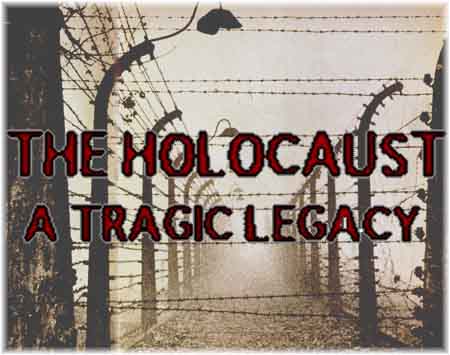
Fred Erlebacher
Fred Erlebacher was arrested
on Kristallnacht. He remembers Kristallnacht like this: "They came to my
store and told me to go to city hall. When I got there, I saw every jewish
man from the village. It was a cold November night, but some of them were
still in their pajamas. There was an American citizen, a tourist. He said,
'I'm an american citizen.' They said, 'You're a jew', and kicked him hard.
The SS took us for a couple hour march through the town, and the town residents
looked at us as if we were criminals. They marched us to the next town
and put us in a barn. The next morning they marched us to the railway station.
They loaded us into a freight train and took us to Dachau. When we got
there, they opened the doors. 'Out', they yelled at us an knocked us with
the butts of their guns. I was in Dachau for five weeks. My mother brought
papers saying that I would leave Germany, so I was released. At that time
it was enough if you just left Germany."
Handout
Anita Federman
Anita Federman lived in Liverpool, England. She remembers: "Some time before WWII Began, Helga a jewish kid my age, came from Germany to live with us. Her parents couldn't get out, but she did. There were lots of kids like her, and many of them had emotional problems. Imagine, they were torn from their families and were sent to a foreign speaking country. The Jewish organization which brought her to us and looked after these children tried desperately to keep in touch with their families. For the years Helga was with us, she never heard from her parents. It was a Difficult time." Handout
Cantor Moshe Ernlich
Cantor Moshe Ehrlich was in Vienna During the holocast. He remembers: "My father wanted to get out, but no one would take us in, the only nearby country not under Hittlers rule was Switzerland. My dad smuggled himself into Switzerland. They sent him back. Later he did get in. We got visas to come to America, but the Anerican councul made my father return to Vienna to have his visa stamped. This way at the height of Germany power and they sent him back. Handout
Julius Rosenzweig
Julius Rosenzweig lived in Frankfurt am Main. He rembers: "I looked out of my window and saw the regular policeman and two Brown Shirts, the SA, come into our building. My mother told me to take a walk. If I didn't, I might have been arrested like so many others. A day or two later I saw a Jewish-owned department stores all with broken windows. None of the stores reopened. they had no customers, no merchandise, no security. They were sold to gentiles for almost nothing."
Dori Laub
Dori Laub was five years old
in 1942 when his parents were taken away. They lived in a concentration
camp for two years. Dori's father was taken away by German soldiers and
never seen again. When the German army retreated in 1949 from the eastern
front. Dori and his mother were free to return home. Amazingly, they found
his grandparents still alive in Czernowitz. Things weren't the same as
they had been before. However the anti-Semitism unleashed by the deprivation,
and hostiles of the war was pervasive - and so Dori emigrated to
Israel with his mother and grandparents in 1950. As a teenager, he developed
an interest in psychiatry and psychoanalysis, but an interest his own dramatic
childhood experiences lay dormant until much later when recollection was
impelled by curcialevents in Israel history.